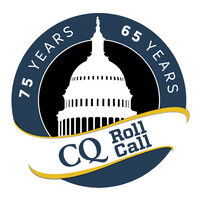The Shifting Sands of American Politics: A Dual Analysis of Gay Activism and the Future of the GOP
July 31, 2024, 11:34 am

Location: United States, District of Columbia, Washington
Employees: 201-500
Founded date: 1945

Location: United States, District of Columbia, Washington
Employees: 51-200
Founded date: 1955
In the landscape of American politics, two narratives are unfolding. One is the evolution of gay activism, particularly the role of conservative voices within it. The other is the uncertain future of the Republican Party, especially in the wake of Donald Trump’s influence. Both stories reveal the complexities of identity, loyalty, and the quest for acceptance in a rapidly changing society.
The history of gay activism in America is often painted with broad strokes, focusing on the left and its champions. Yet, a nuanced tale emerges when we consider the contributions of gay conservatives. During the Cold War, the Lavender Scare sought to purge homosexuals from government roles. It was a dark time, but from this oppression, a flicker of activism ignited. Dorr Legg and others argued for limited government as a pathway to freedom. They believed that less federal intervention would allow them to live openly.
Leonard Matlovich stands out in this narrative. A decorated Air Force sergeant, he challenged the military’s ban on gay service members. His coming out was a bold statement, showcasing that one could be both patriotic and gay. Matlovich became a symbol, not of radicalism, but of a conservative ideal. He fought for the right to serve his country, a cause that resonated deeply with many Americans.
As the 1980s rolled in, the HIV/AIDS crisis reshaped public perception. The initial wave of tolerance was swept away by fear and stigma. Hard-right conservatives like Pat Buchanan exploited this fear, pushing back against the burgeoning gay rights movement. Gay Republicans found themselves caught in a storm. They had supported Reagan, but disillusionment grew as the party turned against them.
Fast forward to the 2000s, and the landscape shifted again. The marriage equality movement gained momentum, with gay conservatives playing a pivotal role. Thinkers like Andrew Sullivan and Jonathan Rauch championed same-sex marriage long before it became a mainstream issue. Their intellectual arguments helped sway public opinion, transforming marriage equality from a divisive issue to a widely accepted norm.
Today, the gay conservative movement faces new challenges. The rise of figures like Ron DeSantis and the “Don’t Say Gay” legislation has sparked concern. Many gay Republicans support these measures, believing they are narrowly focused. However, there’s an underlying fear that this could be the beginning of a broader assault on LGBTQ rights. The echoes of past struggles remind us that progress is never guaranteed.
Meanwhile, the Republican Party grapples with its identity in the post-Trump era. JD Vance, the newly minted vice presidential nominee, embodies this struggle. While he carries Trump’s torch, questions loom about his ability to lead the party into the future. Delegates at the recent convention expressed mixed feelings. Some see potential in Vance, while others eye rising stars like Byron Donalds and Tim Scott.
The party’s future is a puzzle with many pieces. Loyalty to Trump remains paramount, but the landscape is shifting. The specter of Mike Pence looms large, a reminder of the dangers of disloyalty. Vance must navigate these treacherous waters carefully. His performance as vice president will determine his standing within the party.
Polling data reveals a stark reality. Many voters are unfamiliar with Vance, and his approval ratings are lukewarm at best. The Republican base is restless, seeking fresh faces and ideas. Figures like Vivek Ramaswamy are gaining traction, appealing to a younger demographic. His charisma and message resonate, positioning him as a potential leader in the party’s evolution.
As the GOP seeks to redefine itself, the principles of Trumpism remain central. The mantra of “Make America Great Again” continues to echo. Yet, the party must adapt to survive. The future will require a delicate balance between loyalty to Trump and the need for new leadership.
In both narratives, the theme of identity is paramount. For gay conservatives, the struggle for acceptance within a party that often marginalizes them is ongoing. For the GOP, the challenge lies in reconciling its past with an uncertain future. The sands of American politics are shifting, and those who navigate them wisely may find a path to success.
The interplay between these two stories is fascinating. Gay conservatives have carved out a space within a party that has historically been hostile. Their journey reflects a broader struggle for acceptance and recognition. Similarly, the Republican Party must confront its identity crisis, balancing tradition with the need for evolution.
In conclusion, the narratives of gay activism and the Republican Party’s future are intertwined. Both are marked by struggles for identity, acceptance, and loyalty. As America continues to change, these stories will evolve, shaping the political landscape for years to come. The road ahead is uncertain, but the resilience of those involved offers hope for a more inclusive future.
The history of gay activism in America is often painted with broad strokes, focusing on the left and its champions. Yet, a nuanced tale emerges when we consider the contributions of gay conservatives. During the Cold War, the Lavender Scare sought to purge homosexuals from government roles. It was a dark time, but from this oppression, a flicker of activism ignited. Dorr Legg and others argued for limited government as a pathway to freedom. They believed that less federal intervention would allow them to live openly.
Leonard Matlovich stands out in this narrative. A decorated Air Force sergeant, he challenged the military’s ban on gay service members. His coming out was a bold statement, showcasing that one could be both patriotic and gay. Matlovich became a symbol, not of radicalism, but of a conservative ideal. He fought for the right to serve his country, a cause that resonated deeply with many Americans.
As the 1980s rolled in, the HIV/AIDS crisis reshaped public perception. The initial wave of tolerance was swept away by fear and stigma. Hard-right conservatives like Pat Buchanan exploited this fear, pushing back against the burgeoning gay rights movement. Gay Republicans found themselves caught in a storm. They had supported Reagan, but disillusionment grew as the party turned against them.
Fast forward to the 2000s, and the landscape shifted again. The marriage equality movement gained momentum, with gay conservatives playing a pivotal role. Thinkers like Andrew Sullivan and Jonathan Rauch championed same-sex marriage long before it became a mainstream issue. Their intellectual arguments helped sway public opinion, transforming marriage equality from a divisive issue to a widely accepted norm.
Today, the gay conservative movement faces new challenges. The rise of figures like Ron DeSantis and the “Don’t Say Gay” legislation has sparked concern. Many gay Republicans support these measures, believing they are narrowly focused. However, there’s an underlying fear that this could be the beginning of a broader assault on LGBTQ rights. The echoes of past struggles remind us that progress is never guaranteed.
Meanwhile, the Republican Party grapples with its identity in the post-Trump era. JD Vance, the newly minted vice presidential nominee, embodies this struggle. While he carries Trump’s torch, questions loom about his ability to lead the party into the future. Delegates at the recent convention expressed mixed feelings. Some see potential in Vance, while others eye rising stars like Byron Donalds and Tim Scott.
The party’s future is a puzzle with many pieces. Loyalty to Trump remains paramount, but the landscape is shifting. The specter of Mike Pence looms large, a reminder of the dangers of disloyalty. Vance must navigate these treacherous waters carefully. His performance as vice president will determine his standing within the party.
Polling data reveals a stark reality. Many voters are unfamiliar with Vance, and his approval ratings are lukewarm at best. The Republican base is restless, seeking fresh faces and ideas. Figures like Vivek Ramaswamy are gaining traction, appealing to a younger demographic. His charisma and message resonate, positioning him as a potential leader in the party’s evolution.
As the GOP seeks to redefine itself, the principles of Trumpism remain central. The mantra of “Make America Great Again” continues to echo. Yet, the party must adapt to survive. The future will require a delicate balance between loyalty to Trump and the need for new leadership.
In both narratives, the theme of identity is paramount. For gay conservatives, the struggle for acceptance within a party that often marginalizes them is ongoing. For the GOP, the challenge lies in reconciling its past with an uncertain future. The sands of American politics are shifting, and those who navigate them wisely may find a path to success.
The interplay between these two stories is fascinating. Gay conservatives have carved out a space within a party that has historically been hostile. Their journey reflects a broader struggle for acceptance and recognition. Similarly, the Republican Party must confront its identity crisis, balancing tradition with the need for evolution.
In conclusion, the narratives of gay activism and the Republican Party’s future are intertwined. Both are marked by struggles for identity, acceptance, and loyalty. As America continues to change, these stories will evolve, shaping the political landscape for years to come. The road ahead is uncertain, but the resilience of those involved offers hope for a more inclusive future.